Scientific Advisor & Advisory Board
A global network of clinicians, researchers and industry leaders tasked with guiding the Foundation’s investment in research on PURA Syndrome.
Scientific Advisor
In 2024, the PURA Syndrome Foundation contracted the non-for profit organization Odylia Theraputics to conduct a gap analysis which helped the PSF clarify its strategic research opportunities and goals. In order to help move these initiatives forward, we are pleased to welcome Kathryn Post DeMott as our Scientific Advisor. In this role, Kathryn will provide scientific and strategic guidance and act as a scientific liaison for the PURA Syndrome Foundation with the community of patients and families, researchers, clinicians, and industry partners.
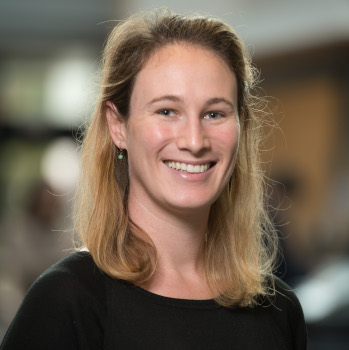

Kathryn Post DeMott
Kathryn Post DeMott, PhD is a Scientist at the non-for profit company Odylia Therapeutics. She is responsible for overseeing the science of all Odylia programs and is the lead of the Brydge Solutions program. Through the Brydge Solutions program she works with rare disease patient advocacy groups, academics and industry to accelerate drug development timelines, mitigate risks and optimize research investments.
Kathryn received her Bachelors in Neuroscience from Boston University and her PhD in Neuroscience from the University of British Columbia where she studied rare mutations associated with neurodevelopmental disorders.
Following her PhD, she did a Post-Doctoral Fellowship at the Center for Rare Childhood Disorders at Translational Genomics in Phoenix, Arizona before joining Odylia as a Scientist. Over the last decade she has gained extensive experience working in the fields of neurodevelopment and neurodegeneration with a focus on genetics.
PURA Syndrome Scientific Advisory Board (SAB)
The PURA Syndrome Foundation’s SAB guides and provides feedback to the Foundation on important decisions and projects. Each member of our SAB has experience with PURA, whether as current researchers, previous researchers or clinicians seeing patients with PURA Syndrome. Members bring their knowledge and expertise to the table to provide:
- Feedback on current projects that we are working on to improve the foundation overall
- Feedback on funding requests for research
- Guidance on what areas to invest funds for research or other resources
- Regular reviews of late breaking research and publications for sharing with our community
Meet Our Scientific Advisory Board
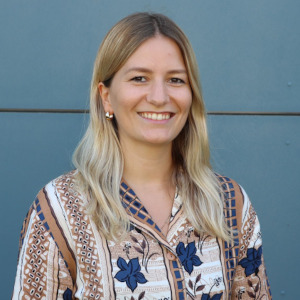
Sabrina Bacher
- 2014-2019: Bachelor and Master’s degree in Biotechnology from the Management Center Innsbruck, Austria
- 2020-2024: PhD in Pharmaceutical Biotechnology from the University of Ulm, Germany, in collaboration with Helmholtz Zentrum Munich
- Research focus on PURA protein’s role in neuronal differentiation using stem cell models and cerebral organoids
- Expertise in single-cell and bulk RNA sequencing, proteomics, and metabolomics
- Contributions to understanding molecular and cellular mechanisms in PURA syndrome
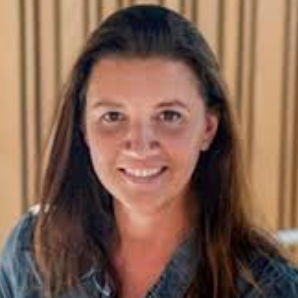
Diana Baralle
University of Southampton, United Kingdom
Diana Baralle holds a personal chair at the University of Southampton and is a Consultant in Clinical Genetics, working at the interface of research and clinical service. She was recently awarded a prestigious NIHR Senior investigator award and an emeritus NIHR Research Professor.
During her undergraduate training in Medicine at University College London, she completed an intercalated Degree in Human Genetics and subsequently trained first in Paediatrics and then Clinical Genetics.
She completed her doctorate and Action Medical Research Training Fellowship in the Department of Pathology, Cambridge University where she held an academic position before her current appointment in Southampton.
Prof. Baralle continues to see patients in clinic and runs a translational research group that drives forward functional genomics to improve diagnosis. She investigates novel causes for rare disorders and in particular the role of RNA and splicing in genetic disease. She was the senior investigator on one of the two first papers in 2014 describing PURA syndrome in the Journal of Medical Genetics and has worked on PURA research since.
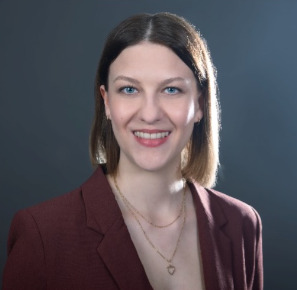
Sandra Burczyk
Project Engineer Validation Management, catelit GmbH, Illertissen, Germany
Dr. Sandra Burczyk is a molecular biologist with an extensive research background in cellular and microbiology. She completed her studies in Biochemistry and Pharmaceutical Biotechnology at Ulm University and the University of Applied Sciences in Biberach (Germany), where she developed a strong foundation in microbiology and biotechnological applications.
Sandra pursued her Ph.D. at the Institute of Pharmaceutical Biotechnology at Ulm University, conducting her research in the laboratory of Prof. Dierk Niessing. Her doctoral studies focused on investigating the cellular functions of the neuronal protein PURB, a paralog of PURA, with a particular emphasis on its interactions with DNA and its role in transcriptional regulation.
In November 2024, Sandra transitioned into the pharmaceutical industry and now serves as a Project Engineer in Validation Management, which is an important component of quality control, ensuring that pharmaceutical processes comply with established standards and regulations supporting the development of safe and effective therapeutic solutions.
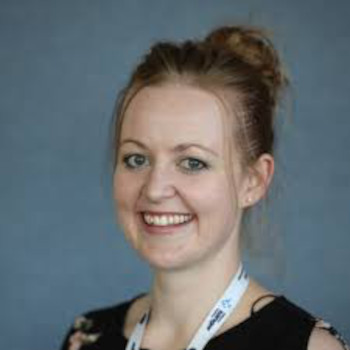
Annie Godwin
University of Portsmouth, United Kingdom
Dr. Annie Godwin is currently a lecturer in Protein Engineering and Synthetic Biology at the MRes Science & Health School of Environment and Life Sciences.
For her Ph.D., she modeled rare genetic disease in Xenopus (frog) tadpoles and part of her work was focused on developing and analysing models of PURA Syndrome. She worked with Professor Matt Guille at the European Xenopus Resource Centre, University of Portsmouth, United Kingdom.
Prior to her PhD, Annie obtained an Undergraduate Master’s degree from the University of Manchester and had spent two years in the European Xenopus Resource Centre working on reducing the number of male Xenopus used in research.

Jennifer Gordon
Jennifer Gordon, Ph.D. is the Chief Scientific Officer at Excision BioTherapeutics. Prior to joining Excision, Dr. Gordon spent nearly three decades in academic research, most recently as Associate Professor, Department of Neuroscience and Center for NeuroVirology, and Associate Dean for Research at Temple University School of Medicine. Dr. Gordon has been the recipient of numerous NIH grants for her research on HIV and JC virus, as well as neurodevelopmental and neurodegenerative disorders. She has published over 125 peer-reviewed research papers, review articles, book chapters, and CME monographs.
Dr. Gordon received a B.S. in Biology from Albright College and a Ph.D. in Pathology from MCP-Hahnemann School of Medicine. She completed a postdoctoral fellowship in Molecular Virology in the Department of Biology, College of Science of Technology, Temple University, before joining the faculty at Temple.
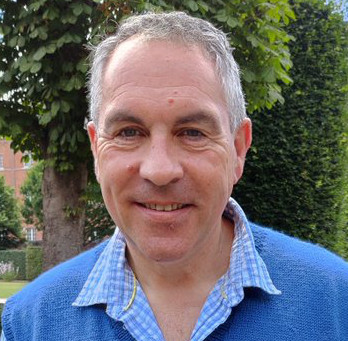
Matthew Guille
European Xenopus Resource Centre, Portsmouth, United Kingdom
Matt Guille is Professor of Developmental Genetics at the University of Portsmouth, he grew up on the tiny island of Guernsey before obtaining his degree and PhD in Biochemistry at King’s College London. After 3 years of postdoctoral work in cell culture at what is now the Crick Institute Matt returned to working on gene regulation in the frog Xenopus, his PhD subject. At the University of London’s Developmental Biology Research Centre he was part of the team that discovered how Gata transcription factors control cardiovascular system formation. Matt then established his own lab, continuing these studies at Portsmouth on the South Coast of England until he was asked by the Xenopus research community to create a resource centre for genetics in the model. Work on this began in 2006 and the EXRC is now the largest centre for such studies, with visitors coming to train and do experiments from all over the world. With the advent of gene editing, which works extremely well in the frog, Matt sought collaborations with clinical geneticists to test whether the frog could be a useful tool to help them diagnose and understand rare genetic diseases. Among the diseases he and his colleague Annie Godwin have discovered and/or investigated with Sarah Ennis and Diana Baralle at Southampton is PURA. In his spare time Matt coaches on Britain’s Olympic rifle pathway.
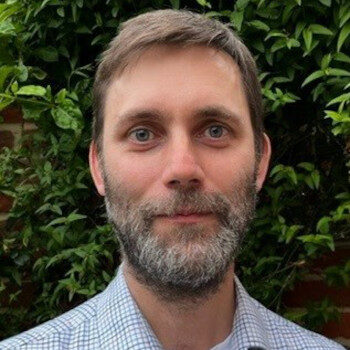
David Hunt
University of Southampton, United Kingdom
Dr. David Hunt is a Consultant Clinical Geneticist, based in Southampton, UK. He has been a member of the Wessex Clinical Genetics Service since 2012 and has been working as a consultant since 2016. He has an appointment as an Honorary Research Fellow at the University of Southampton.
Whilst an undergraduate in Medicine at St Bartholomew’s and the Royal London School of Medicine and Dentistry, he completed an intercalated bachelor’s degree in Biochemistry at University College London. He subsequently transferred to the MBPhD Programme at University College London and completed an intercalated PhD in Molecular Pathology.
Dr. Hunt then completed his Foundation and Core Medical Training in London, before relocating to Southampton in 2012.
He has co-authored several peer-reviewed articles about PURA syndrome, including one of the first two papers characterising PURA Syndrome in October 2014. He was also involved in organising the first PURA Syndrome Annual Conference in the summer of 2015 and he continues to work closely with the PURA Syndrome Foundation.
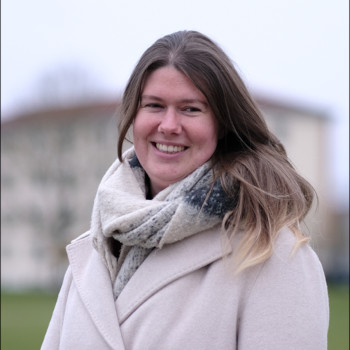
Melina Klostermann
PostDoc at Julius-Maximilians-Universität Würzburg, Germany
Dr. Melina Klostermann began her academic journey with a Bachelor’s and Master’s degree in Biomolecular Engineering at Technische Universität Darmstadt. In 2020, she transitioned to the field of Bioinformatics and started her Ph.D. in Computational RNA Biology under the supervision of Kathi Zarnack at Goethe University Frankfurt.
During her doctoral studies, she investigated the RNA-binding properties of the PURA protein on a transcriptome-wide level in close collaboration with the Niessing group at Helmholtz Center Munich. For this, she conducted bioinformatics analyses on multiple datasets generated by the Niessing group. Later in her Ph.D., her research focus shifted towards method development for the analysis of RNA-binding proteins more broadly.
Following her Ph.D., Melina transitioned into a postdoctoral position at Julius-Maximilians-Universität Würzburg in November 2024, where she continues to advance research in computational biology. Her expertise spans data-driven biological research, method development, and the application of bioinformatics tools to tackle key challenges in molecular and cellular biology. In this position, she will further investigate the PURA protein, integrating both existing and newly generated data while incorporating machine learning approaches.

Eric Marsh
Children's Hospital of Philadelphia (CHOP), Pennsylvania, USA
Eric Marsh, MD, PhD, is an attending pediatric neurologist in the Division of Neurology at Children’s Hospital of Philadelphia (CHOP). He specializes in diagnosing and treating children with neurodevelopmental disorders (including Rett Syndrome), developmental epilepsies, epilepsy, infantile spasms syndrome and malformations of cortical development.
Dr. Marsh’s philosophy of care centers around helping families feel heard and informed.
“It’s important that families are listened to, their concerns are taken seriously and the issues and conditions they face are explained to them to the best of our abilities,” he says.
In addition to his role at CHOP, Dr. Marsh is an Associate Professor of Neurology at the Perelman School of Medicine at the University of Pennsylvania and Clinical Director of the Penn Orphan Disease Center
Dr. Marsh has long been fascinated by the workings of the brain and how its billions of neurons can lead to neurological diseases when not functioning properly. This interest has driven his research into genetic epilepsies and genetic neurodevelopmental disorders.
“Understanding these disorders can lead to a better grasp of how the brain works and can lead to novel treatments and cures for these conditions,” he says.
Much of Dr. Marsh’s research focuses on mutations in the ARX gene, which cause epilepsy and other diseases. He is also studying the clinical presentations of Rett syndrome, Dravet syndrome and Lennox-Gastaut syndrome, CDKL5 syndrome and related disorders, and is involved in a number of clinical trials for novel therapeutics.
“There is an emergence of cell-, RNA- and DNA-based therapies as well as pathway-directed pharmaceutical approaches to treating these difficult to treat conditions,” he says. “I feel that a better clinical understanding of these conditions using new technologies to track and monitor neurological function will allow for novel therapies to improve patients’ lives.”
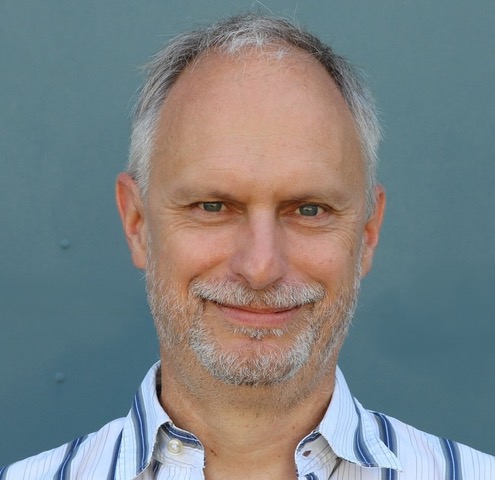
Dierk Niessing
Helmholtz Zentrum München, Germany
Professor Dr. Dierk Niessing has over 25 years of experience in biomedical research and serves as advisor to different patient organisations. He studied Biology and did his PhD at the Max-Planck-Institute for Biophysical Chemistry (Germany). After research visits at The Rockefeller University (New York City) and SGX Pharmaceuticals INC (San Diego), he became a research group leader at the Helmholtz Zentrum München. Since 2017 he also serves as head of the Institute of Pharmaceutical Biotechnology at the Ulm University (Germany). Both labs, in Munich and Ulm, use structural, biochemical and stem cell-based approaches to understand the molecular underpinnings of the PURA Syndrome.
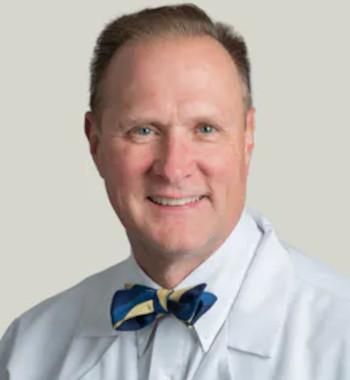
Douglas R. Nordli, Jr.
UChicago Medicine, Illinois, USA
Douglas R. Nordli, Jr., MD, is a highly skilled neurologist who specializes in treating children with neurological conditions. Dr. Nordli focuses on pediatric epilepsy, with a particular interest in early onset epilepsy, and he is passionate about understanding each child’s unique condition so that he can provide targeted treatment for better results.
Along with Dr. Nordli’s clinical work, he is also actively researching methods to improve pediatric neurology care. Dr. Nordli is investigating techniques to predict and alter the course of epilepsy and examining how a novel method of classification of epilepsy can lead to better diagnosis and treatment. Dr. Nordli has been published in numerous peer-reviewed journals, such as the Journal of Pediatrics, Pediatric Neurology, Epilepsia and Epilepsy & Behavior.
Dr. Nordli is also involved in the education of medical students, residents and fellows. He mentors fellows and has developed CME courses to help guide pediatric neurology residents and fellows. Dr. Nordli has also given multiple lectures both during ground rounds and as an invited lecturer nationally and abroad.
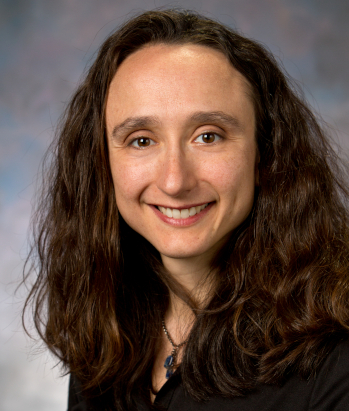
Margie Ream
Nationwide Children's Hospital, Ohio, USA
Margie Ream, M.D., Ph.D. is an Associate Professor of Pediatrics and Child Neurology at Nationwide Children’s Hospital (NCH) and the Ohio State University College of Medicine in Columbus, OH. She received degrees in Biology from The University of Richmond in Richmond, VA and MD/PhD degrees from the Duke University School of Medicine in Durham, NC. Her thesis work focused on defining the essential role of catecholamines during fetal development. She trained in Pediatrics and Child Neurology at Duke University and joined the faculty at NCH in 2013. She holds board certifications in Neurology with Special Qualification in Child Neurology and Epilepsy.
Clinically her work focuses on severe early life, genetically mediated neurologic disease. She performs Fetal and Neonatal ICU consultations and is director of the NCH Leukodystrophy clinic. Her recent research is focused on understanding the natural history and pathogenesis of leukodystrophy, the role of newborn screening in the care of children with neurologic disease, and graduate medical education which is an essential part of the care of children with rare neurologic conditions. She is actively engaged in public policy development related to newborn screening as Chair of the Ohio Newborn Screening Advisory Council, co-investigator for the DHHS/Health Resources and Services Administration evidence review group, and Child Neurology Society organizational representative to the Secretary’s Advisory Committee for Heritable Disorders in Newborns and Children.
She has served as the NCH Child Neurology Residency Program Director since 2017 and was previously associate program director. She has receveid her hospital’s Child Neurology Teacher of the Year Award, AAN Program Director Award and is a fellow of both the CNS and AAN. She also serves as vice chair of the CNS Child Neurology Educator’s Committee and the United Council for Neurologic Subspecialties.

Lauren Sanchez
UT Southwestern Medical Center, Texas, USA
Lauren Dengle Sanchez, M.D., is an Assistant Professor in the Departments of Pediatrics and Neurology at UT Southwestern Medical Center. She specializes in general child neurology and neuro-oncology.
After earning her medical degree at the UTHealth Houston McGovern Medical School, Dr. Sanchez completed residencies in Pediatrics and Child Neurology at UT Southwestern.
Certified by the American Board of Psychiatry and Neurology with a special qualification in child neurology, she joined the UT Southwestern faculty in 2014.
Among her other roles, Dr. Sanchez is the Program Director of the UT Southwestern Pediatric Neurology Residency program and a UT Southwestern medical student advisor. Clinically she has an emphasis on neurofibromatosis type 1 as well as neurodevelopmental syndromes including PURA syndrome.
In addition, she is a member of the American Academy of Neurology’s Consortium of Neurology Program Directors. In 2021, she was listed among D Magazine’s Best Doctors and Pediatric Specialists for Pediatric Neurology. She is also the mother of child with PURA Syndrome.
